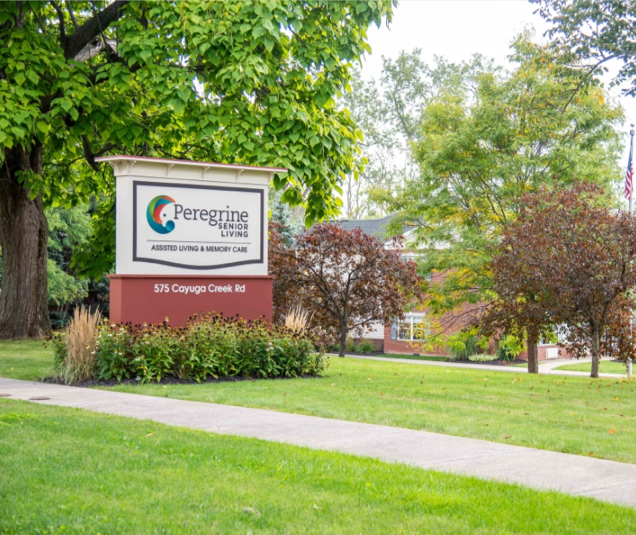Preventing elderly loved ones from falling out of bed is essential for their safety, comfort, and long-term independence. Bed-related falls are a common cause of injury in older adults, especially for those living alone or managing health conditions. Whether someone is aging in place through independent living or receiving daily support in an assisted living community, proactive safety measures are critical.
Falls can often be prevented by combining practical tools like bed rails, fall mats, and motion-sensor lighting with safer bedtime routines, clear floor spaces, and adjustable or lower bed heights. Addressing mobility challenges, vision changes, and cognitive conditions early on—whether at home or in a senior living setting—can go a long way in reducing nighttime risks.
Why Do Seniors Fall Out of Bed?
Falls in general are the leading cause of injury and death for adults aged 65 and older. Bed falls in particular often happen due to a mix of physical, cognitive, and environmental factors. Identifying the underlying causes can help determine the best prevention plan. Common risk factors include:
- Muscle weakness or mobility issues: With age, our strength and balance naturally decline, making it harder to shift positions or safely exit the bed.
- Cognitive decline or dementia: Disorientation or wandering during the night may lead to sudden movement and accidental falls.
- Side effects of medications: Drowsiness, dizziness, or blood pressure changes can impair coordination.
- Restless sleep: Conditions like Parkinson’s disease or chronic pain may cause frequent movement.
- Vision or hearing loss: Reduced sensory input makes it more difficult to detect edges or safely navigate in the dark.
- Frequent nighttime bathroom trips: Standing up quickly or walking without light can increase the risk of slipping or losing balance.
Devices That Help Prevent Bed Falls
Several practical tools can make the bedroom safer and reduce the chance of falling out of bed.
Bed Rails
Bed rails create a barrier along the side of the bed and help prevent rolling off during sleep. Many also serve as support bars for getting in and out of bed more safely. Options range from half-length rails for easier access to full-length ones for maximum coverage.
Bedside Fall Mats
Foam mats placed next to the bed offer a soft surface to reduce injury in the event of a fall. These are especially helpful for people who are prone to nighttime movement or who may be at high risk due to health conditions.
Lower Bed Heights
A lower bed reduces the distance to the ground, minimizing injury risk and making it easier for someone to sit or stand up safely. Some beds are adjustable, while others can be modified with shorter frames or legs.
Adjustable or Hospital-Style Beds
These beds can be raised, lowered, or tilted to support safe sleep positions and make transfers easier. Built-in rails and hand controls allow for greater comfort and functionality.
Motion-Activated Lighting
Night lights that turn on automatically when someone moves can help seniors see where they’re going if they wake up. Bright, accessible lighting reduces the risk of tripping over obstacles or losing balance in the dark.

Safe Bedtime Habits
Beyond equipment, small changes in daily habits and routines can go a long way toward fall prevention.
Clear the Floor Space
Make sure there are no rugs, cords, furniture legs, or other items that could be tripped over during the night. Use non-slip flooring and keep mobility aids like walkers or canes within reach.
Keep Essentials Nearby
Place important items—like water, glasses, tissues, or medication—on a bedside table within easy reach. This helps reduce the need to stretch, lean, or get up during the night.
Establish a Calming Bedtime Routine
A consistent routine can improve sleep and reduce nighttime confusion. Help your loved one wind down with calming activities, and ensure they use the bathroom and take any necessary medications before bed.
Promote Gentle Physical Activity
Daily movement improves strength, coordination, and balance. Light stretching, walking, or chair exercises can make a noticeable difference in physical stability.
Addressing Cognitive Challenges
Seniors with dementia or other cognitive impairments may be more prone to nighttime wandering or agitation, increasing the risk of falling.
Tips for Dementia-Related Falls
- Install bed alarms that alert caregivers if someone is getting up unexpectedly.
- Use unobtrusive monitoring tools such as night cameras or door sensors.
- Create a soothing sleep space with low lighting, familiar objects, and minimal noise.
- Avoid overstimulation in the evening to reduce confusion and restlessness before bed.
In cases where cognitive impairment is progressing, memory care services may offer the safest and most supportive solution.
Safety Without Sacrificing Independence
Fall prevention doesn’t mean removing all freedom. In fact, the goal should be to support independence with the right safeguards in place. Seniors are more likely to accept help when they feel respected and involved in decision-making.
Instead of focusing on risk, highlight how changes can support comfort and control. For instance:
- “This rail can help you turn over more easily.”
- “The lower bed makes it easier to stand up in the morning.”
- “This light helps you see clearly if you wake up at night.”
Collaborative conversations make transitions smoother and more positive for everyone involved.
When Home Safety Isn’t Enough
When frequent falls become a concern or caregiving becomes overwhelming, it may be time to explore professional senior living support. Assisted living and memory care communities are designed with safety in mind, offering 24/7 staff support, accessible living spaces, and personalized care.
At Peregrine Senior Living at Cheektowaga in NY, residents benefit from:
- Private suites with safety features designed for seniors
- Bedside assistance and around-the-clock caregiving
- Medication support and health monitoring
- Memory care programs tailored for those with cognitive decline
- Wellness activities that enhance physical and emotional health
Families gain peace of mind knowing their loved ones are in a secure and nurturing environment.
Discover Peregrine Senior Living at Cheektowaga
Falls from bed can be prevented with the right combination of tools, routines, and care. Whether your loved one lives at home or is considering a move to a senior living community, taking steps now can reduce injuries and provide greater peace of mind.
Peregrine Senior Living at Cheektowaga in NY is here to support safe, independent, and fulfilling lives for seniors at every stage.
Contact us today to request a tour and learn more about our compassionate care and secure environment.












We are getting ready for Valentine’s Day the sweetest way 💕
We made chocolate suckers and clusters, and took a trip to Wahl’s Candies for some delicious treats. ... See MoreSee Less
0 CommentsComment on Facebook
Easter Egg HuntMar 29, 1:30pm575 Cayuga Creek Road, Cheektowaga, NY, United States, New York 14227Easter Egg Hunt-Please RSVP by March 22nd. We hope to see you there!
The egg hunt will begin promptly at 2pm for 0-3 year olds and 2:10pm for 4 and older.
We will have snacks, drinks, and crafts available, and the Easter Bunny will be visiting for pictures! ... See MoreSee Less
0 CommentsComment on Facebook
February is American Heart Month, a time to focus on caring for the muscle that keeps us moving and thriving. 🫀
We encourage residents to take heart-healthy steps every day: enjoying balanced meals, staying active, connecting socially, and taking moments to rest and recharge.
Together, we can make heart health a daily celebration of life and well-being.
peregrinecheektowaga.com/ ... See MoreSee Less
0 CommentsComment on Facebook
Want to stay connected with what’s happening across our community?
Follow us on Instagram for updates, moments we love, and stories worth sharing.
Come join the community by following us via the link below ⬇️
www.instagram.com/peregrinecheektowaga/ ... See MoreSee Less
0 CommentsComment on Facebook
February is a time for love and friendship! 💕
We are celebrating Galentine’s Day this Friday in honor of all of our amazing women. On Saturday, residents will enjoy a special Valentine’s Day dinner with music. We are also excited to welcome a Black History Month storyteller on February 24th (not posted on the calendar). Plus, there are many more fun activities and events to look forward to throughout the month! ... See MoreSee Less
0 CommentsComment on Facebook
Here are the Super Bowl square numbers. If you win, we will reach out on Monday. Good Luck! ... See MoreSee Less
1 CommentsComment on Facebook
We had our annual “Soup”er Bowl today! All of the soups were delicious, but this year’s winner was Rebecca, our Activity Director, with her Red Pepper and Tomato Soup. We can’t wait for the next cookoff! ... See MoreSee Less
0 CommentsComment on Facebook